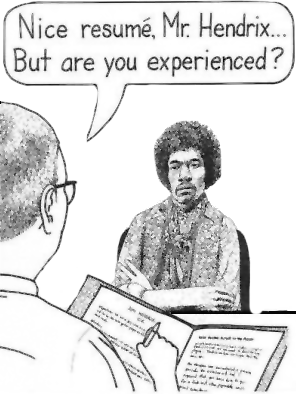Interviews suck.
They can be one of the most anxiety soaked events that leave you feeling spent and judged. Today, though, let’s take away a little of the anxiety by disclosing one critical thing you can do to get to the final stages of the process.
The ancient Greeks said it best.

Some of the biggest failures I have seen on projects come when someone overestimates their strengths or knowledge.I will take a person that is weaker in knowledge and knows it over someone that may have more knowledge but thinks they are an expert. I love and encourage those that reach for the stars – I just want to be sure they really know where their feet are at the time
I recently had a very respectable candidate come in for a one-on-one interview for a management position. In usual fashion I spent the first 5-10 minutes telling him everything I can about why he is here, what I am looking for, and where this role fits within the company. Then I asked the first question.
“Tell me why you are the best person for this role?”
Thirty-five uninterrupted minutes later (whew) I asked the second question.
“What would others at your company say distinguishes you from your peers?”
The 5 minute answer started off with
“I am concise and a very good listener.”
Interview over.
It wasn’t the 35 minute answer that did it, it was the fact that he did not demonstrate that which he professed to be. He didn’t know himself.
 When someone doesn’t know who they are they are a big risk; their reality meter doesn’t register correctly and skews a lot of other judgement calls. When I look into your eyes and ask “are you capable of getting this done on time” I want to know that you have a very good sense of who you are and how big a stretch the goal will be.
When someone doesn’t know who they are they are a big risk; their reality meter doesn’t register correctly and skews a lot of other judgement calls. When I look into your eyes and ask “are you capable of getting this done on time” I want to know that you have a very good sense of who you are and how big a stretch the goal will be.
If you have come to the stage where you are actually talking to me in an interview you have typically been screened and viewed to have the right mix of skills needed to do the job. Chances are excellent that if you are truly great at what you say are your best strengths and have reasonable skills in the areas listed that you will have an excellent shot at the position. If you can’t demonstrate what you profess I have no choice but to believe that you have either lied or don’t have a good sense of yourself. Neither get you to the next stage.
So what do should you do to prepare for an interview like this?
- Write down the top 3 things that you believe make you great at what you do.
- Ask 3 other people you have worked with the longest what they think are your top 3.
- Throw away your 3.
It is important to understand why your list doesn’t match their list. Talk to them afterward about what you thought were your top 3 and see why it wasn’t on their list. Get to know yourself as others see you. Still, if they don’t see it chances are very good I won’t either.
Once you know your three make sure you find a way to communicate them to me. If clarity is one be clear. If you are a visionary choose to focus on answers that talk to the future. If you pride yourself on being concise don’t give 35 minute answers. Most importantly don’t ever put anything on a resume that if asked you can’t demonstrate to the degree you represent. That speaks volumes above all else.
Finally, if you want to know how well you did in an interview, ask me, not then and there but after the decision is made. I would love to help you see how it looks from the other side of the process. I actually ended up hiring someone later that did just that.
He rocked.
Question of the Day
Have you ever asked someone you’ve interviewed with what you could do to improve your interview skills?






